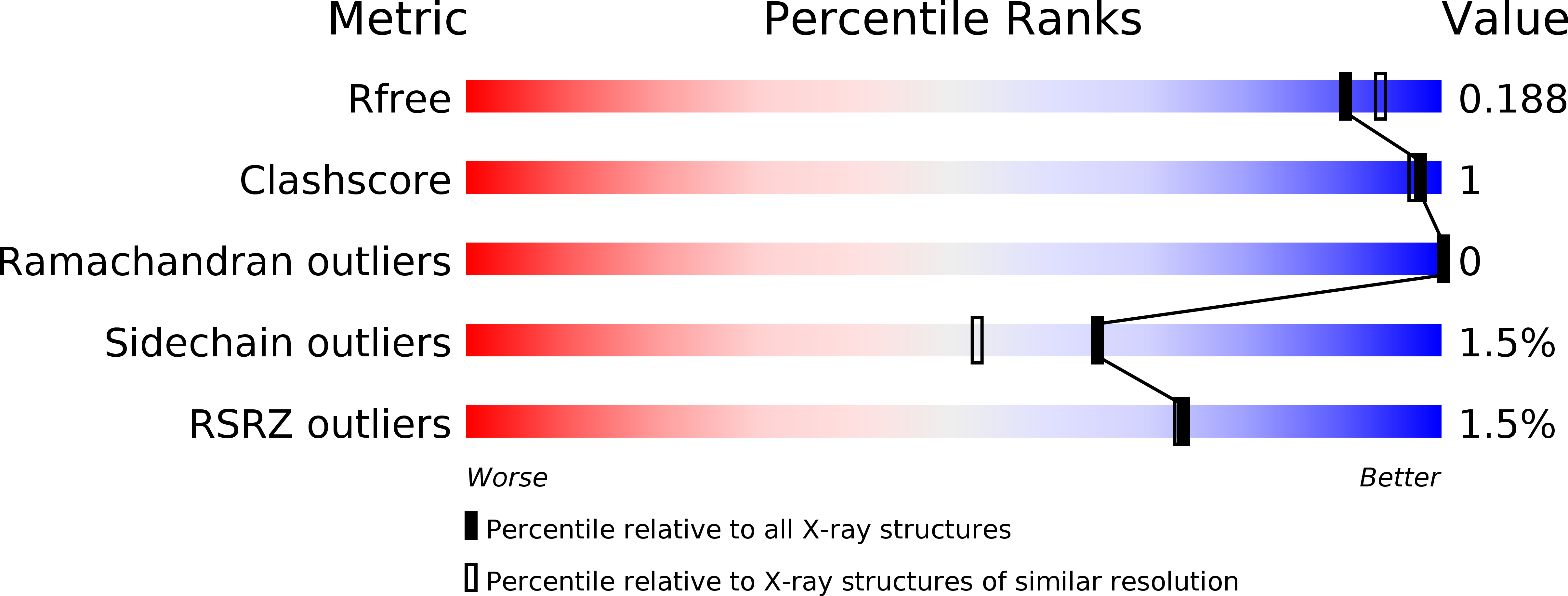
Deposition Date
2017-10-04
Release Date
2017-12-13
Last Version Date
2024-05-08
Entry Detail
PDB ID:
6ENB
Keywords:
Title:
LTA4 hydrolase (E297Q) mutant in complex with Pro-Gly-Pro peptide
Biological Source:
Source Organism(s):
Homo sapiens (Taxon ID: 9606)
Expression System(s):
Method Details:
Experimental Method:
Resolution:
1.84 Å
R-Value Free:
0.18
R-Value Work:
0.15
R-Value Observed:
0.15
Space Group:
P 21 21 21


